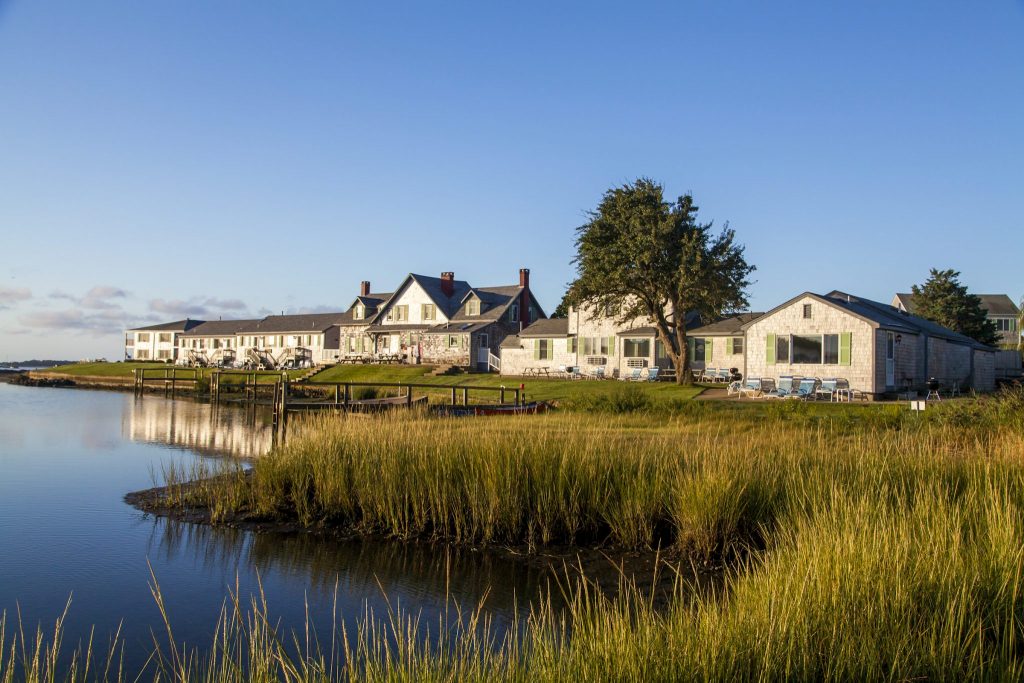Skift Take
South Florida and California aren’t the only durable U.S. leisure hotel markets. Expect more investors like EOS to look for opportunities outside the traditional destinations most popular with hotel funds.
A New York-based hotel investor’s push into New England leisure markets has ramifications for the greater industry’s focus on where to park capital.
EOS Investors acquired the six-property Red Jacket Resorts chain, the firm announced exclusively to Skift Tuesday. The small hotel chain’s portfolio is split between five resorts in Cape Cod and a resort in the White Mountains of New Hampshire.
A six-resort portfolio totaling 650 rooms may not seem like much compared to other deals that closed this week like Hyatt’s $2.7 billion Apple Leisure Group acquisition. But the push into a market as highly seasonal as Cape Cod shows how hungry investors are to scoop up supply in what looks like an increasingly expanded leisure travel climate coming out of the pandemic.
“When we’re evaluating these investments and their financial opportunity, we already have the expectation there is seasonality. We won’t be fooled,” Tom Burns, managing direct at EOS Investors, said in an interview with Skift. “What’s exciting to us for potential upside are the spring and fall, times of year that were historically weaker. As people spend more time away from the office, we think there’s real long-term opportunity for hyper-seasonal markets to be less seasonal.”
Flexible work trends with more people able to spend at least a few days out of the working week away from the office lend itself to more leisure travel, the thinking goes. Wyndham Hotels & Resorts leaders reported on the company’s third quarter earnings call last week a rise in four-day weekend travel even after Labor Day when children go back to school.
Even adding 30 to 45 days to the Cape Cod or White Mountain travel season would provide “meaningful impact” to the Red Jacket Resorts portfolio, Burns said. These markets are tricky for hotel investors, however, because the seasonality doesn’t pencil out for lenders or investors considering a ground-up project.
EOS’s acquisition could be a strategy for other hotel investors who have spent months looking for opportunities to emerge across the hotel and resort landscape.
Acquiring and renovating existing properties is still the most prudent way forward for investors considering a leisure market like Cape Cod compared to more year-round destinations like Miami. Competitors in the region like Lark Hotels are similarly known for their adaptive reuse projects in the local hospitality space.
“Because of the seasonality, it has been difficult to make money building new hotels in those markets because they don’t generate enough revenue to the justify building costs,” Burns said. “While we would find it difficult to build a new hotel, you can do exciting things with partnerships and branding.”
EOS is known for its significant East Coast holdings like Kingston Resorts in Myrtle Beach, South Carolina, as well as the Kennebunkport Resort Collection in Maine. The investment group also has luxury hotels in major cities like the Hamilton Hotel in Washington, D.C., and L’Ermitage Beverly Hills in Southern California.
It wouldn’t be out of the realm of possibility for an investor like EOS to buy a portfolio like this and not do much with the assets. Most of the Cape Cod portfolio overlooks Nantucket Sound while the New Hampshire property sits in the White Mountains. Both regions can fetch high rates in their respective peak travel seasons that seem to only be getting higher in light of more drive-to and domestic leisure travel during the pandemic.
EOS still plans to undertake significant renovations to guest rooms and public areas and enhance the food and beverage offerings. Both EOS and a representative with Davenport Cos., the former owner of Red Jacket Resorts, declined to offer a price tag on the transaction given both are private companies.
The company also doesn’t expect to be the only investor with an eye on markets like Cape Cod, especially in the current climate where buyers have plenty of capital to pour into investments but are getting priced out of areas like the Sun Belt.
“There is still outsized competition in those markets [like South Florida and California]. Everybody knows them, and they’re considered less risky,” Burns said. “But we continue to really like exploring markets that we as consumers have known for a very long time. They just don’t have the same capital markets exposure.”
Have a confidential tip for Skift? Get in touch
Tags: cape cod, coronavirus, coronavirus recovery, investors
Photo credit: Much of the Red Jacket Resorts portfolio fronts Nantucket Sound or other parts of the Cape Cod waterfront (pictured: the Green Harbor Resort). EOS Investors/Red Jacket Resorts
